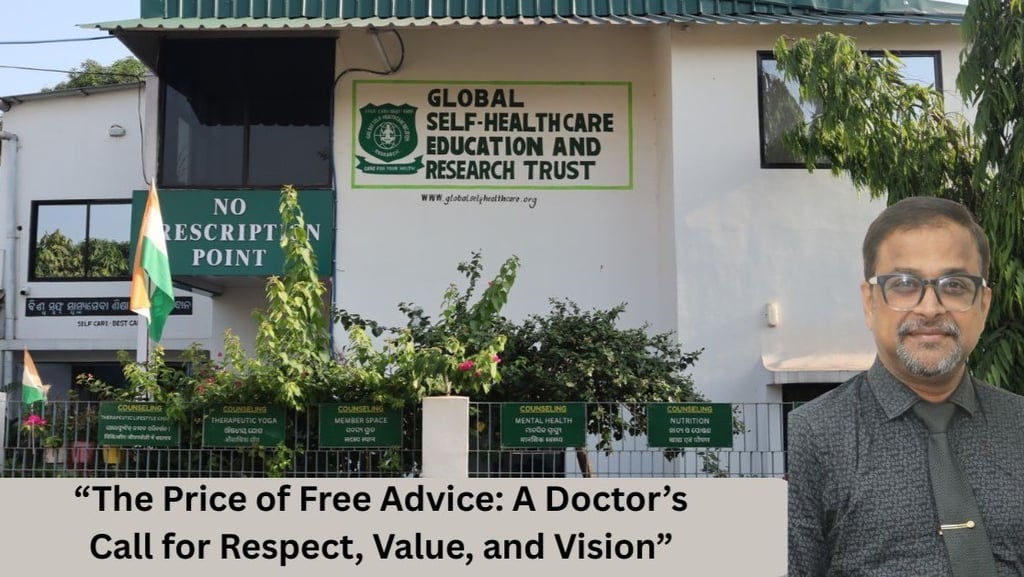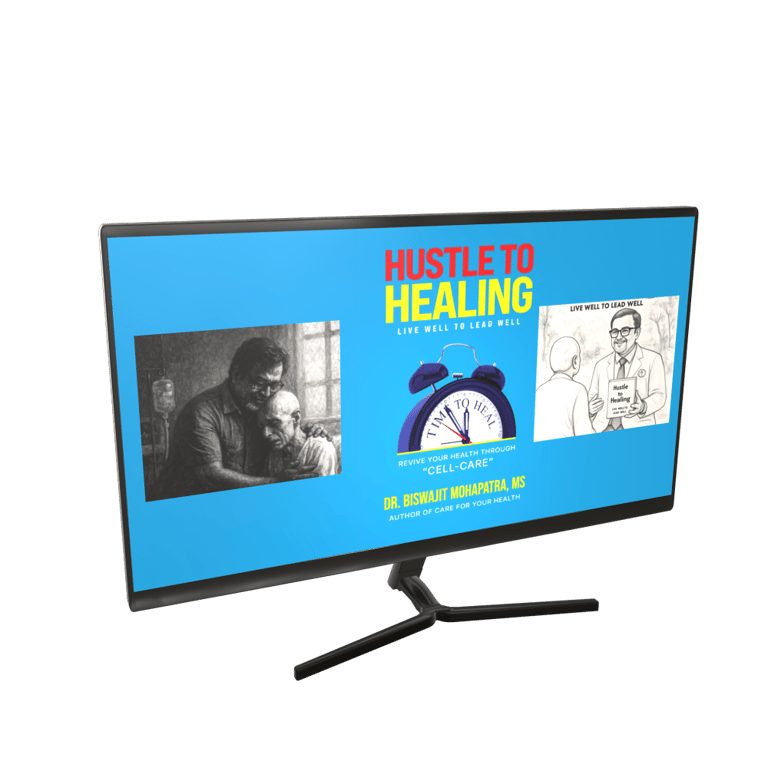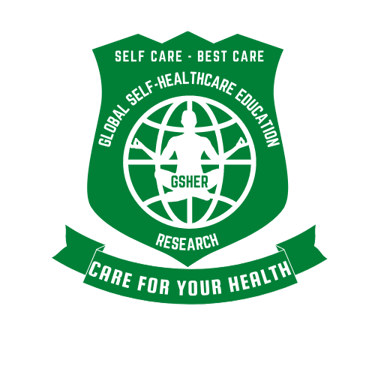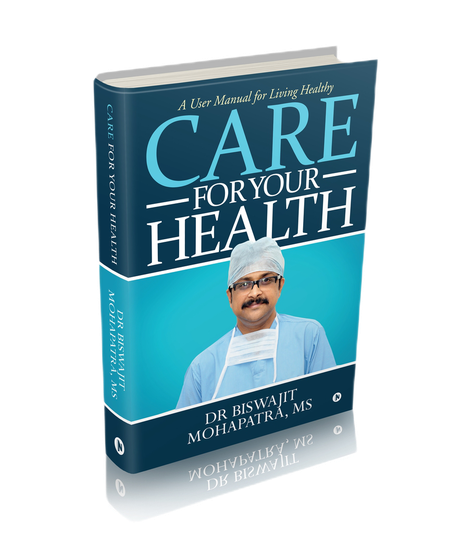

“Sir… what to do now?”
Every doctor has heard it. Sometimes after discharge, sometimes over a phone call, sometimes from someone who forwards a lab report on WhatsApp.
For years, I answered politely. “Walk daily. Eat light. Sleep well.” They nodded with gratitude and forgot the moment they stepped out. At first, I thought my explanations were too technical. Later, I realized the truth: they weren’t listening.
They asked because they had to ask — not because they were ready to act. Over time, I felt I was pouring knowledge into bottomless cups. And slowly, my words began to feel heavy with futility.
Doctors are the only professionals who give their most precious asset, knowledge, away for free, often without realizing it.
No engineer draws free blueprints. No lawyer drafts free petitions. No artist paints because “someone just wanted to see.” But a doctor is expected to answer every message, every “just a quick question,” every “opinion please.”
We give it because we were trained to serve. But service without boundaries becomes servitude.
One evening, after another day of endless follow-ups, I looked at my stethoscope lying silently on the table. For the first time in decades, I didn’t feel proud. I felt tired, not of healing, but of being taken for granted.
So one day, I stopped giving advice. Not out of anger: out of self-respect.
The next week, whispers began. “Doctor doesn’t talk much now.” “Sir has changed.”
Yes, I had changed. I had realized that people wanted my time cheap and my wisdom free.
But silence, I discovered, has its own healing power. It forces people to reflect. And reflection is the first step to real recovery.
That silence birthed a question inside me: What if there was a place where advice was sacred, not casual? Where knowledge was valued not because it was expensive, but because it was respected? Where people didn’t come for prescriptions, but for perception?
That night, I wrote three words in my diary: No Prescription Point.
The next morning, I parked my car before the old, neglected house that had once been shelter to many relatives. To others, it was just an old bungalow, but to me it looked like unspoken hope.
“This,” I whispered, “will be the place where words will heal again.”When the house was ready, I stood barefoot on the soil. “I want this to feel like a garden, not a hospital,” I told myself,
Today, when you enter No Prescription Point, the first thing you notice isn’t a waiting room. It’s the Garden of Breath: tulsi, aloe, lemongrass. The air smells alive. Each plant teaches a lesson: resilience, purity, self-healing, joy.
Inside, there are no white coats or prescription pads. Only spaces where silence and science coexist:
The Counselling Chamber — Two Bamboo chairs, a garden view, and one line on the wall: “You are not here for advice. You are here to awaken.”
The Health Library — Sunlit shelves on biology, psychology, nutrition, yoga, and consciousness. The table bears one inscription: “Swayam Seva Sarvochha Seva — Self-care is the Highest Service.”
The Meditation Point — A coper meditation pyramid. Wind chimes. low light. Here, people learn to breathe again before they learn to heal again.
The Hall of Insight — A bamboo furnitured amphitheater where we hold workshops on Therapeutic Lifestyle Change. No PowerPoints. Just powerful pauses.
Ahara Anubhuti Café — Herbal teas, millet biscuits, slow eating, mindful living.
And in the evening, the Healing Insight comes alive with “Share & Inspire” circles. People tell their stories, of recovery, reflection, resilience. Sometimes laughter fills the air; sometimes tears. But always, there is humanity.
A journey from Prescription → Perception begins here
At NPP, no one is a patient. Everyone is a participant.
Here, medicine is not written; it is realized. People learn that health isn’t a pill — it’s a partnership with one’s own cells.
One man said after a month of sessions,
“Sir, my sugar levels improved, but more than that, my thoughts became lighter.” That’s when I knew: Healing begins where listening begins.
Creating NPP healed me, too. For years, I had treated others while neglecting myself. I lived on adrenaline, survived on duty, and called burnout “dedication.”
Now, every dawn, I walk barefoot through the Garden of Breath. Dew underfoot. Air inside ribs. I have written the first prescription I truly follow:
Rx: Silence, 30 minutes daily.
Route: Awareness.
Refills: Infinite.
I call it The Medicine of Stillness.
When I began charging for self-healthcare consultations, people asked, “Sir, you charge just to talk?” I smiled. “Yes. Because words can heal deeper than medicine.”
Slowly, they understood. When knowledge is paid for, it is valued. When it is valued, it is practiced. And when it is practiced, it transforms.
Respect returned, not because I demanded it, but because I defined it.
No Prescription Point is not just a place; it’s a philosophy. It reminds doctors that our words have worth, and reminds society that our wisdom has value.
We doctors are not machines dispensing prescriptions. We are interpreters of life, translators of biology into meaning.
If every hospital had a Perception Room beside its ICU, if every medical college taught mindfulness before anatomy, medicine would rediscover its lost soul.
Because healing doesn’t begin in labs or OT lights, it begins in awareness.
Today, under the umbrella of GSHER (Global Self-Healthcare Education and Research), No Prescription Point is growing into a movement. Workshops, student programs, therapeutic yoga, positive psychology, nutritional awareness, all guided by one principle:
Prescription transforms into perception. Knowledge transforms into care. Care transforms into culture.
We dream of an India where every home has a Self-Healthcare Educator, every institution has a space like NPP, and every doctor finds the courage to say, “My time and my wisdom are sacred.”
After all these years, I have realized three truths:
People don’t remember advice; they remember awareness.
Doctors don’t burn out because they work too much — they burn out because they give too freely.
Healing others begins with respecting yourself.
So, when a patient now asks, “Sir, what to do?” I don’t rush to answer. I pause, smile, and ask, “Tell me what you think you should do.” That moment of reflection is where medicine truly begins.
If I could prescribe one thing to every human being — doctor or patient, young or old, rich or poor — it would be this:
Breathe consciously. Listen deeply. Live wisely.
The world doesn’t need more prescriptions. It needs more perception.
Sometimes, visitors ask me, “Sir, what exactly is No Prescription Point?” My answer is “This is a place where medicine remembers its humanity.”




